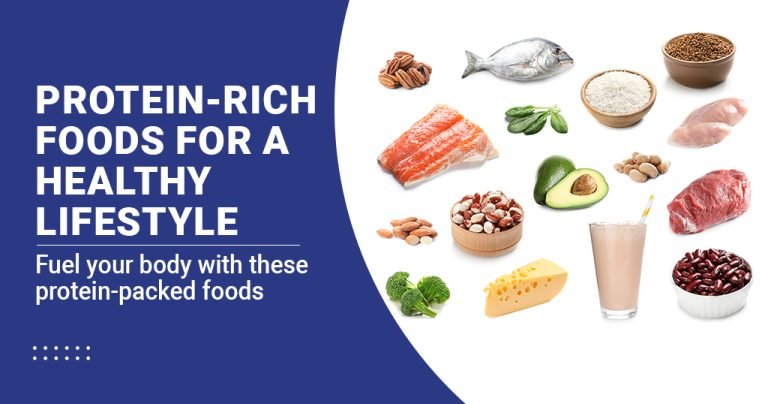
You know that maintaining a healthy diet is crucial for your overall well-being, but finding the right balance can sometimes be a challenge. That’s why we’re excited to present “Protein-rich Foods for a Healthy Diet,” a game-changer in the world of nutrition. Packed with high-quality macronutrients, this product is designed to make it easier for you to meet your protein intake goals and optimize your health. Whether you’re a fitness enthusiast or simply looking to make smarter food choices, Protein-rich Foods for a Healthy Diet is here to support you on your journey towards a healthier lifestyle.
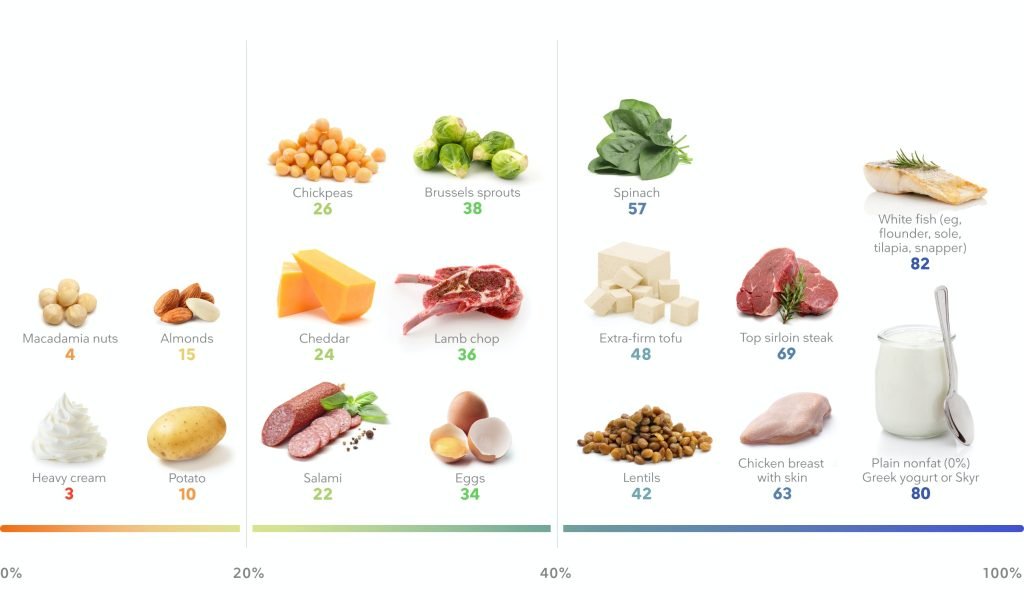
This image is property of www.dietdoctor.com.
The Importance of Protein in a Healthy Diet
Protein is an essential macronutrient that plays a vital role in maintaining a healthy body. It is important for building and repairing tissues, supporting muscle growth, enhancing metabolism, and boosting immune function. Including an adequate amount of protein in your diet is crucial for overall wellbeing.
Definition of Macronutrients
Macronutrients are the nutrients required by the body in large quantities to provide energy and promote growth and development. They include proteins, carbohydrates, and fats. While each macronutrient is important, protein stands out as a key player in maintaining optimum health.
Role of Protein in the Body
Protein is involved in numerous functions within the body. It is made up of amino acids, which are the building blocks of life. When we consume protein, our bodies break it down into these amino acids and use them for various purposes. These include repairing cells, building and maintaining muscle mass, supporting the immune system, and producing enzymes and hormones.
Recommended Daily Intake of Protein
The recommended daily intake of protein depends on factors such as age, sex, weight, and activity level. On average, it is recommended to consume about 0.8 grams of protein per kilogram of body weight. However, athletes, pregnant or breastfeeding women, and individuals recovering from injuries may have higher protein requirements. Consulting with a healthcare professional or a registered dietitian can help determine the appropriate protein intake for your specific needs.
Animal-based Protein Sources
Animal-based protein sources are known for their high-quality protein content and complete amino acid profiles. They can be an excellent addition to a balanced diet.
Lean Meats
Lean meats such as chicken breast, turkey, and lean cuts of beef are rich sources of high-quality protein. They are low in fat and provide essential nutrients like iron and zinc. Grilling, baking, or roasting these meats is a healthy way to prepare them and maintain their nutrient content.
Poultry
Poultry, including chicken and turkey, is another great source of protein. It is lean and low in saturated fat compared to red meat. Removing the skin before cooking can further reduce the fat content. Poultry can be prepared in various ways, such as grilling, baking, or sautéing, to add variety to your meals.
Fish and Seafood
Fish and seafood are not only rich in protein but also provide essential omega-3 fatty acids. Fatty fish like salmon, tuna, and mackerel are particularly beneficial for heart health. Grilling, baking, or steaming fish can help retain its nutrients while keeping the calories low.
Dairy Products
Dairy products such as milk, yogurt, and cheese contain substantial amounts of protein, as well as calcium and vitamin D. Opting for low-fat or skim varieties can help reduce the intake of saturated fat. Greek yogurt is an excellent choice as it has a higher protein content compared to regular yogurt.
Eggs
Eggs are a versatile and affordable source of protein. They contain all the essential amino acids and are also rich in nutrients like vitamins A, D, and B12. From scrambled to hard-boiled, eggs can be enjoyed in various forms to add protein to your diet.
Plant-based Protein Sources
Plant-based protein sources are an excellent option for those following a vegetarian or vegan lifestyle. They are low in saturated fat and cholesterol and provide a variety of other beneficial nutrients.
Legumes
Legumes, including beans, lentils, and chickpeas, are rich in protein and fiber. They also offer a range of vitamins and minerals. Incorporating legumes into your meals, such as chili, soups, or salads, can add a significant protein boost to your diet.
Tofu and Tempeh
Tofu and tempeh are soy-based products that are popular among vegetarians and vegans. They are complete protein sources and can be used in stir-fries, salads, or marinated and grilled for added flavor and texture.
Quinoa
Quinoa is a gluten-free grain that contains all nine essential amino acids, making it a complete protein source. It is also high in fiber and other nutrients like magnesium and iron. Enjoy quinoa as a side dish, in salads, or as a substitute for rice in various recipes.
Edamame
Edamame, or young soybeans, are a delicious and nutritious plant-based protein source. They are packed with protein and fiber and make a great snack or addition to salads and stir-fries.
Seeds and Nuts
Seeds such as chia seeds, hemp seeds, flaxseeds, and sunflower seeds, as well as nuts like almonds, walnuts, and cashews, provide protein, healthy fats, and essential nutrients. Sprinkle them on salads, yogurt, or smoothies, or enjoy them as a standalone snack for a protein boost.
Protein-Rich Grains and Cereals
Grains and cereals can also contribute to your protein intake, although they are not as high in protein as animal or plant-based sources.
Amaranth
Amaranth is a gluten-free grain that is considered a complete protein source. It is packed with fiber, iron, and other essential nutrients. Use it in porridge, salads, or as a substitute for rice or pasta.
Oats
Oats are a popular breakfast option that contains protein, fiber, and important antioxidants. They can be enjoyed in various forms, such as overnight oats, oatmeal, or added to smoothies.
Brown Rice
Brown rice is a whole grain that provides a moderate amount of protein, along with fiber and other nutrients. It is a healthier alternative to white rice and can be used in a variety of dishes, from stir-fries to grain bowls.
Barley
Barley is another whole grain that offers protein and fiber. It is commonly used in soups, stews, and as a base for salads.
Buckwheat
Buckwheat is a gluten-free grain that is packed with protein and fiber. It is commonly used to make noodles, pancakes, or enjoyed as a side dish.
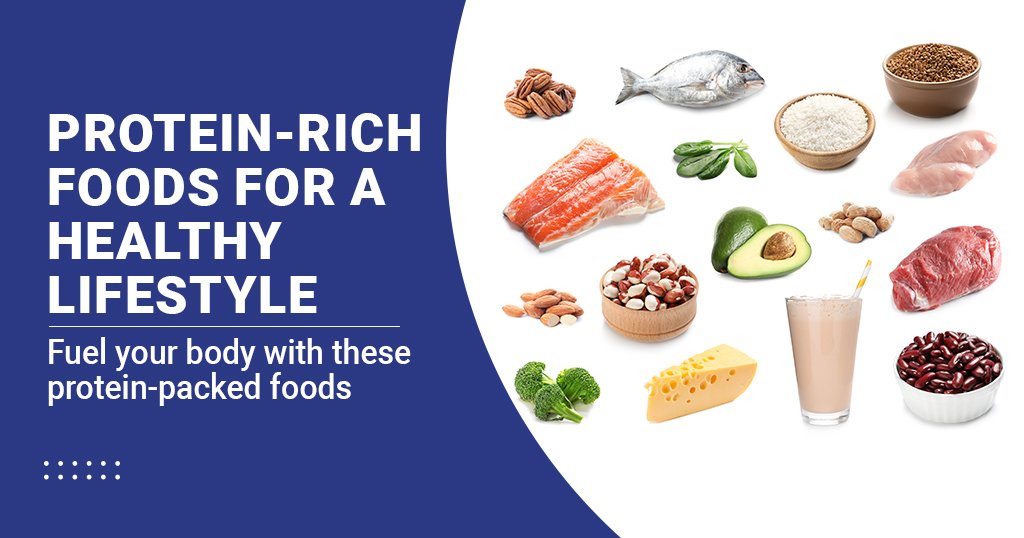
This image is property of www.starhealth.in.
Protein Powders and Supplements
Protein powders and supplements can be a convenient way to increase your protein intake, especially for individuals with specific dietary needs or those who have difficulty meeting their protein requirements through food alone.
Whey Protein
Whey protein is derived from milk and is a complete protein source. It is quickly absorbed by the body, making it ideal for post-workout recovery. Whey protein powders can be blended into smoothies or mixed with water or milk for a quick and easy protein boost.
Casein Protein
Casein protein, also derived from milk, is a slow-digesting protein that provides a sustained release of amino acids. It is commonly consumed before bedtime to support muscle repair and recovery during sleep.
Plant-based Protein Powders
Plant-based protein powders, such as pea protein, hemp protein, and brown rice protein, are suitable options for vegetarians and vegans. They offer a range of amino acids and can be used in smoothies, baked goods, or mixed with water or plant-based milk.
Collagen Peptides
Collagen peptides are derived from animal sources, usually cows or fish, and are known for their benefits to skin, hair, and joint health. While they are not a complete protein source, they can still contribute to overall protein intake.
Benefits of Protein-Rich Foods
Including protein-rich foods in your diet offers a wide range of benefits that contribute to overall health and wellbeing.
Supports Muscle Growth and Repair
Protein is essential for muscle growth and repair. It helps to rebuild muscle fibers that are damaged through exercise or everyday activities. Consuming an adequate amount of protein can support muscle development and maintenance, as well as aid in post-workout recovery.
Increases Satiety and Aids Weight Management
Protein-rich foods have been shown to increase feelings of fullness and reduce appetite. Including protein in your meals and snacks can help control cravings and prevent overeating, ultimately supporting weight management goals.
Enhances Metabolism and Fat Burning
Protein has a higher thermic effect compared to carbohydrates and fats. This means that the body burns more calories to digest and process protein. By increasing protein intake, you can boost your metabolism and potentially support fat burning.
Improves Bone Density and Strength
Protein plays a crucial role in maintaining bone health. It aids in calcium absorption, which is essential for bone mineralization and preventing conditions such as osteoporosis. Including protein-rich foods in your diet can help support strong and healthy bones.
Boosts Immune Function
Protein is involved in the production of antibodies, enzymes, and other molecules that support immune function. Adequate protein intake can strengthen the immune system and help the body fight off infections and diseases.
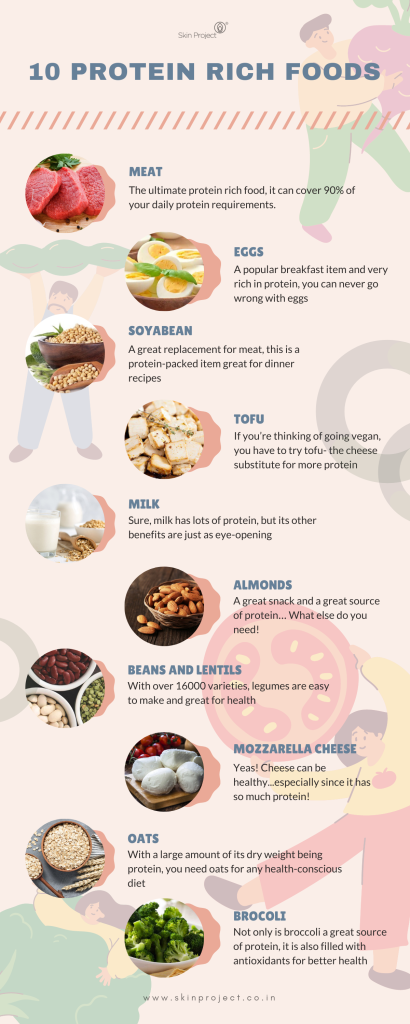
This image is property of cdn.shopify.com.
Protein-Rich Foods for Vegetarians and Vegans
Vegetarians and vegans can still meet their protein requirements by choosing the right combination of plant-based protein sources.
Complete Protein Sources
While most plant-based protein sources are considered incomplete, there are a few exceptions. Soy-based products like tofu and tempeh, as well as quinoa, are complete protein sources as they contain all the essential amino acids.
Combining Incomplete Protein Sources
For vegetarians and vegans, combining different incomplete protein sources can ensure a complete amino acid profile. For example, pairing legumes with grains or seeds can create a complementary protein source. Examples include rice and beans, hummus and pita bread, or lentil soup with whole-grain bread.
Lacto-Vegetarian Options
Lacto-vegetarians, who consume dairy products, can rely on milk, yogurt, cheese, and other dairy-based products as protein sources. These foods are rich in protein and can contribute to meeting the daily requirements.
Vegan-Friendly Protein Sources
Vegan-friendly sources of protein include legumes, tofu, tempeh, quinoa, nuts, seeds, and plant-based protein powders. Variety is key when following a vegan diet to ensure a wide range of amino acids and nutrients are obtained.
Incorporating Protein-Rich Foods into Your Diet
Incorporating protein-rich foods into your diet can be easy and enjoyable. By following a few simple tips, you can ensure that you are meeting your protein needs throughout the day.
Meal Planning and Preparation
Planning out your meals and snacks in advance can help you include a variety of protein-rich foods. Aim to include a source of protein in each meal, such as lean meats, fish, legumes, or tofu. Batch cooking and meal prepping can also save time and make it easier to have protein-rich options readily available.
Creative Protein-Packed Recipes
Experimenting with different recipes and flavors can make eating protein-rich foods more exciting. Try adding grilled chicken breast to salads, incorporating tofu into stir-fries, or making black bean burgers from scratch. There are endless possibilities to explore when it comes to creating delicious and protein-packed meals.
Snack Ideas
Snacks can be a great opportunity to add more protein to your diet. Opt for snacks such as Greek yogurt with fruit, hard-boiled eggs, cottage cheese with vegetables, or a handful of nuts and seeds. These choices can keep you satisfied between meals and provide the protein your body needs.
Protein Smoothies and Shakes
Protein smoothies and shakes can be a convenient and tasty way to increase your protein intake. Use a protein powder of your choice, blend it with fruits, vegetables, and a liquid of your choice (such as milk or plant-based milk), and enjoy a nutritious and protein-rich beverage.

This image is property of i.dietdoctor.com.
Considerations for Protein Intake
While protein is essential for a healthy diet, there are a few considerations to keep in mind for optimal health and wellbeing.
Individual Protein Needs
Everyone’s protein needs are unique and may vary based on factors such as age, sex, weight, and activity level. Consulting with a healthcare professional or a registered dietitian can help determine the appropriate protein intake for your specific needs.
Quality of Protein Sources
Not all protein sources are created equal. Choosing high-quality protein sources, such as lean meats, fish, legumes, and plant-based proteins, ensures you are getting the necessary nutrients along with the protein. Avoiding highly processed and fried protein sources can also contribute to better overall health.
Balancing Macronutrients
While protein is important, it is crucial to balance it with adequate amounts of carbohydrates and healthy fats. All macronutrients play a role in maintaining a balanced diet and providing essential nutrients for optimal health.
Potential Risks of Excessive Protein Intake
While protein is necessary for the body’s normal functioning, excessive protein intake can put strain on the kidneys and may lead to health issues in some individuals. It is important to consume protein in moderation and strike a balance in your overall diet.
Conclusion
Protein is a critical component of a healthy diet and plays a fundamental role in maintaining overall health and wellbeing. Whether you choose animal-based or plant-based sources, it is important to include protein-rich foods in your meals and snacks. By understanding the different sources of protein and incorporating them into your diet, you can ensure that you are meeting your protein needs and reaping the many benefits protein has to offer. Remember to consult with a healthcare professional or registered dietitian to determine the ideal protein intake for your individual needs and goals.
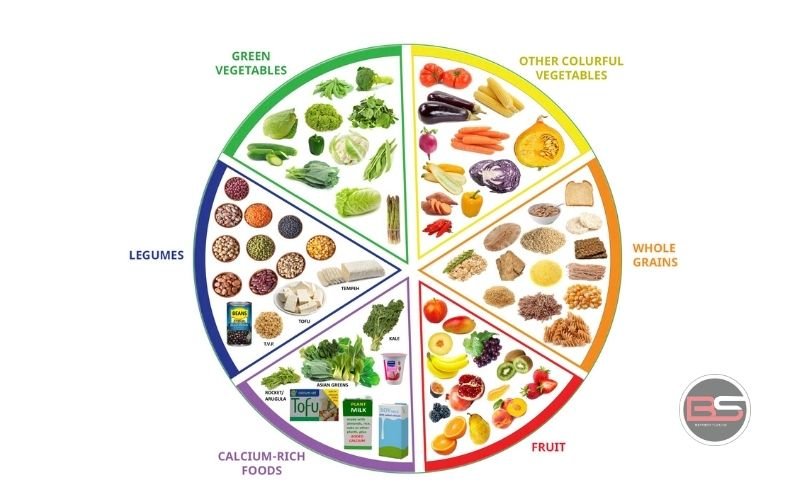
This image is property of bodyandstrength.com.